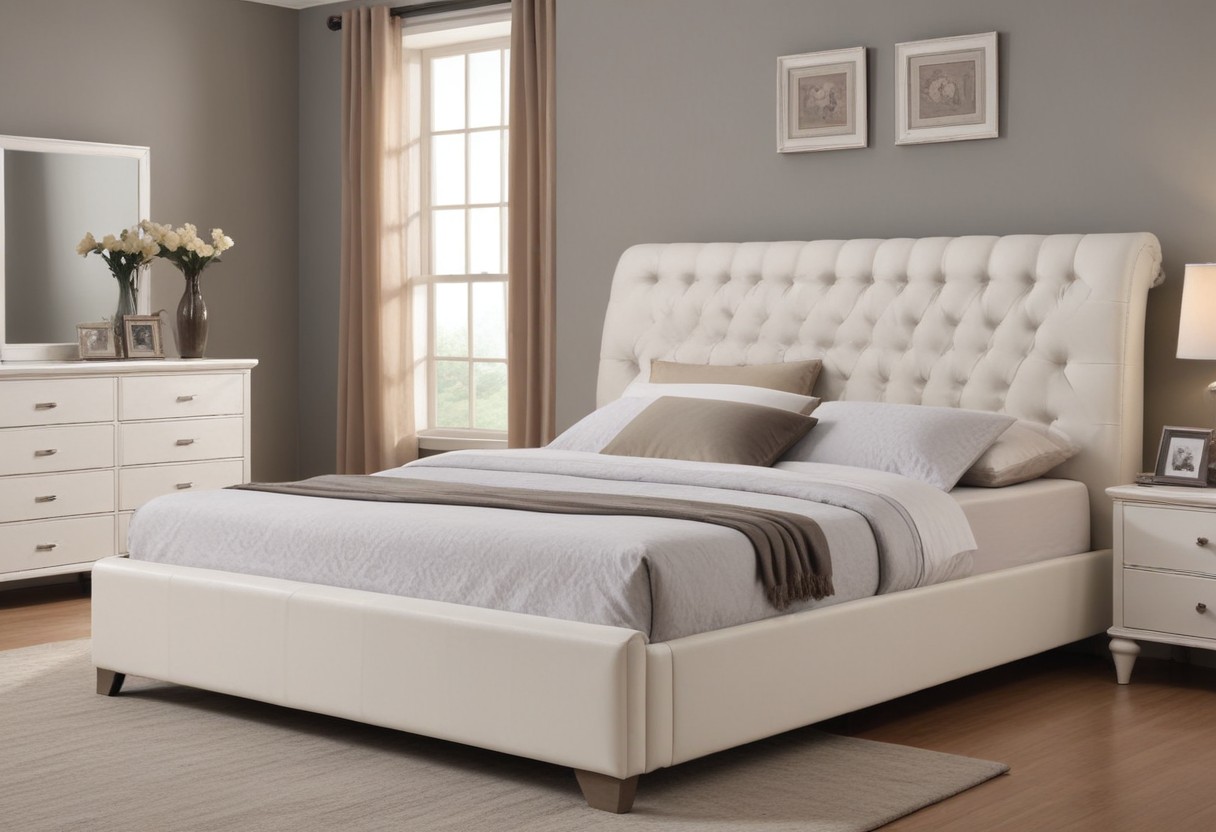Queen size bed us a popular choice for many households, striking a balance between space, comfort, and cost. With dimensions typically around 60 inches wide and 80 inches long, they offer more room than a full-size bed while being less cumbersome than a king-size bed. This article explores the pros and cons of queen size beds to help you determine if this is the right fit for your needs.
Pros of Queen Size Beds
1. Versatility
One of the biggest advantages of queen size beds is their versatility. They fit comfortably in most bedrooms, from master suites to guest rooms, making them an ideal choice for a wide range of living spaces. Whether you have a compact apartment or a spacious house, a queen size bed can often be accommodated without overwhelming the room.
2. Comfort for Couples
For couples, queen size beds provide ample space to sleep comfortably without feeling cramped. While a full-size bed can feel tight for two people, the extra width of a queen bed allows for better movement and personal space. This can contribute significantly to a better night’s sleep, reducing disturbances caused by bumping into each other during the night.
3. Availability of Accessories
Queen size beds are one of the most common bed sizes, which means there is a wide availability of accessories, such as bed frames, mattresses, bedding, and headboards. This availability ensures that you have plenty of options to choose from in terms of style, material, and price. Whether you are looking for luxury linens or budget-friendly options, you are likely to find what you need for a queen size bed.
4. Cost-Effective
Compared to king size beds, queen size beds are more cost-effective. They generally have a lower price point, making them a more affordable option for many households. Additionally, the associated costs, such as for bed linens and accessories, are typically lower than those for king size counterparts. This can make a significant difference in the overall expense of setting up a bedroom.
5. Suitable for Single Sleepers
For single sleepers who enjoy having extra space, a queen size bed is an excellent choice. It provides more room to spread out compared to a twin or full-size bed, enhancing comfort. This can be especially appealing for taller individuals or those who like to have pets sleep with them.
Cons of Queen Size Beds
1. Space Consumption
While queen size beds are versatile, they do require more space than full or twin beds. In smaller bedrooms, they can dominate the area, leaving less room for other furniture and activities. This can make the room feel cramped and may require careful planning of the layout to ensure everything fits comfortably.
2. Weight and Difficulty in Moving
Queen size beds, especially those with larger, more luxurious mattresses, can be heavy and difficult to move. This can be a disadvantage if you need to frequently rearrange your bedroom or if you move houses often. The weight and size can make it challenging to maneuver through doorways and around tight corners.
3. Limited for Smaller Bedrooms
For homes with smaller bedrooms, a queen size bed might not be the best choice. It can consume a significant portion of the available space, making it difficult to fit other essential furniture, such as dressers or desks. This can limit the functionality of the room and make it feel less spacious and inviting.
4. Higher Cost Than Smaller Beds
While queen size beds are more affordable than king size beds, they are still more expensive than full or twin beds. This can be a consideration for those on a tight budget. The initial investment in a queen size bed and its accessories can be substantial, which might not be justifiable for single sleepers who do not need the extra space.
5. Potential for Overcrowding in Shared Rooms
In shared rooms, such as guest rooms or children’s bedrooms, a queen size bed can take up a lot of space that could otherwise be used for other beds or furniture. This can be a drawback if you need to accommodate multiple people or if the room is intended to serve multiple purposes, such as a home office or play area.
Conclusion
In conclusion, queen size beds offer a range of benefits that make them a popular choice for many households. Their versatility, comfort for couples, wide availability of accessories, cost-effectiveness, and suitability for single sleepers are significant advantages. However, they also come with some drawbacks, including space consumption, weight and difficulty in moving, limitations for smaller bedrooms, higher costs than smaller beds, and potential for overcrowding in shared rooms.
When deciding whether a queen size bed is right for you, consider the size of your bedroom, your budget, and your personal sleeping preferences. If you have enough space and the budget for it, a queen size bed can provide a comfortable and versatile solution that enhances your sleeping experience. However, if space or budget constraints are a concern, you may want to explore other options to find the best fit for your needs.
Ultimately, the choice of bed size is a personal one, and weighing the pros and cons carefully can help you make an informed decision. Whether you opt for a queen size bed or another option, the goal is to create a sleeping environment that promotes rest and relaxation, contributing to your overall well-being.




